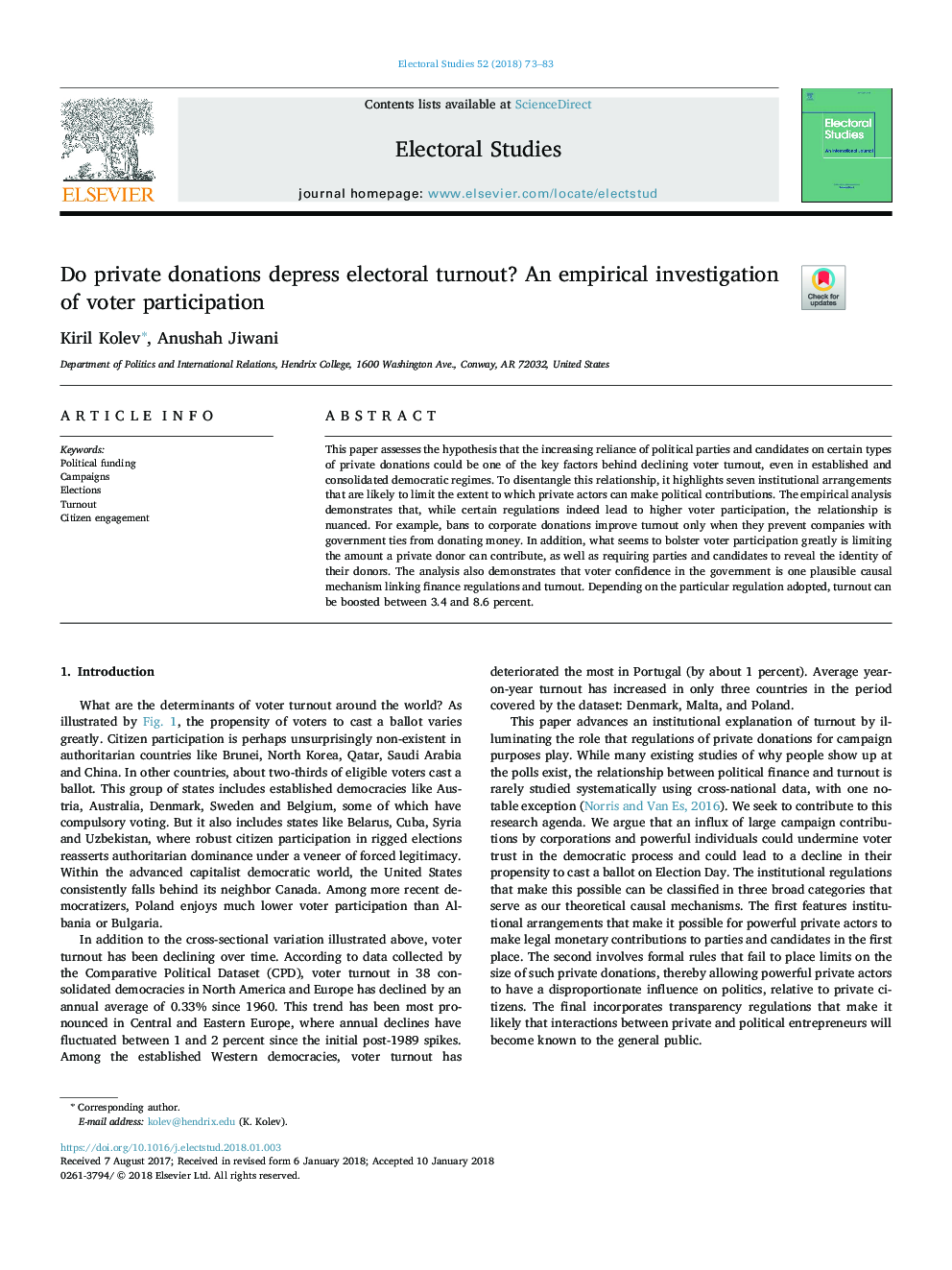| Article ID | Journal | Published Year | Pages | File Type |
|---|---|---|---|---|
| 7463295 | Electoral Studies | 2018 | 11 Pages |
Abstract
This paper assesses the hypothesis that the increasing reliance of political parties and candidates on certain types of private donations could be one of the key factors behind declining voter turnout, even in established and consolidated democratic regimes. To disentangle this relationship, it highlights seven institutional arrangements that are likely to limit the extent to which private actors can make political contributions. The empirical analysis demonstrates that, while certain regulations indeed lead to higher voter participation, the relationship is nuanced. For example, bans to corporate donations improve turnout only when they prevent companies with government ties from donating money. In addition, what seems to bolster voter participation greatly is limiting the amount a private donor can contribute, as well as requiring parties and candidates to reveal the identity of their donors. The analysis also demonstrates that voter confidence in the government is one plausible causal mechanism linking finance regulations and turnout. Depending on the particular regulation adopted, turnout can be boosted between 3.4 and 8.6 percent.
Related Topics
Social Sciences and Humanities
Social Sciences
Geography, Planning and Development
Authors
Kiril Kolev, Anushah Jiwani,
